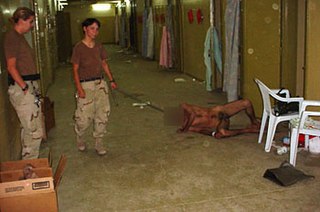 W
WA barbarian is a human who is perceived to be either uncivilized or primitive. The designation is usually applied as a generalization based on a popular stereotype; barbarians can be members of any nation judged by some to be less civilized or orderly but may also be part of a certain "primitive" cultural group or social class both within and outside one's own nation. Alternatively, they may instead be admired and romanticised as noble savages. In idiomatic or figurative usage, a "barbarian" may also be an individual reference to a brutal, cruel, warlike, and insensitive person.
 W
WDehumanization is the denial of full humanness in others and the cruelty and suffering that accompanies it. A practical definition refers to it as the viewing and treatment of other persons as though they lack the mental capacities that are commonly attributed to human beings. In this definition, every act or thought that regards a person as "less than" human is dehumanization.
 W
WDiscrimination against atheists, both at present and historically, includes persecution of and discrimination against people identified as atheists. Discrimination against atheists may also comprise negative attitudes, prejudice, hostility, hatred, fear, or intolerance towards atheists and atheism. Because atheism can be defined in various ways, those discriminated against or persecuted on the grounds of being atheists might not have been considered atheists in a different time or place. 13 Muslim countries officially punish atheism or apostasy by death, while "the overwhelming majority" of the 193 member states of the United Nations "at best discriminate against citizens who have no belief in a god and at worst can jail them for offences dubbed blasphemy".
 W
WDocumenting Hate is a project of ProPublica, in collaboration with a number of journalistic, academic, and computing organizations, for systematic tracking of hate crimes and bias incidents. It uses an online form to facilitate reporting of incidents by the general public. Since August 2017, it has also used machine learning and natural language processing techniques to monitor and collect news stories about hate crimes and bias incidents. As of October 2017, over 100 news organizations had joined the project.
 W
WEphebiphobia is the fear of youth. First coined as the "fear or loathing of teenagers", today the phenomenon is recognized as the "inaccurate, exaggerated and sensational characterization of young people" in a range of settings around the world. Studies of the fear of youth occur in sociology and youth studies. It is distinguished from pedophobia by being more so focused on adolescents than prepubescent children.
 W
WThe Great Gypsy Round-up, also known as the general imprisonment of the gypsies, was a raid authorized and organized by the Spanish Monarchy that led to the arrest of all gypsies (Romani) in the region, and their imprisonment in labor camps. The raid was approved by the King Ferdinand VI of Spain, and organized by the Marquis of Ensenada, and set in motion simultaneously across Spain on July 30, 1749.
 W
WElizabeth (Betsy) Levy Paluck is a professor in the department of psychology and the Princeton School of Public and International Affairs at Princeton University, where she also serves as deputy director of the Kahneman-Treisman Center for Behavioral Science & Policy. She is known for her work on prejudice, social norms and conflict reduction. She is best known for creating large-scale field experiments utilizing theoretical social psychology strategies and tools to formulate effective and practical methods for reducing conflict and discrimination. Due to her extensive work investigating the influences of the Rwandan genocide and her work with high school bullying, Paluck is considered a leading authority on field-tested methods of changing intolerant and aggressive social behavior.
 W
WJohn Bordley Rawls was an American moral and political philosopher in the liberal tradition. Rawls received both the Schock Prize for Logic and Philosophy and the National Humanities Medal in 1999, the latter presented by President Bill Clinton, in recognition of how Rawls' work "helped a whole generation of learned Americans revive their faith in democracy itself."
 W
WA second-class citizen is a person who is systematically discriminated against within a state or other political jurisdiction, despite their nominal status as a citizen or legal resident there. While not necessarily slaves, outlaws or criminals, second-class citizens have limited legal rights, civil rights and socioeconomic opportunities, and are often subject to mistreatment or neglect at the hands of their putative superiors. Systems with de facto second-class citizenry are generally regarded as violating human rights.
 W
WThe social contract in Malaysia refers to the understanding made by Malaya's founding fathers in the Constitution, nearing its independence. The social contract refers to a trade-off through Articles 14–18 of the Constitution, pertaining to the granting of citizenship to the non-Bumiputera of Malaya, and this was carried over to Article 153 when Malaysia was formed on 16 September 1963, which grants the Malays a special position in the country. This circumstance does not apply in Sarawak as all racial groups were citizens, bestowed by the legitimate Brooke government, way before the founding of Malaysia.